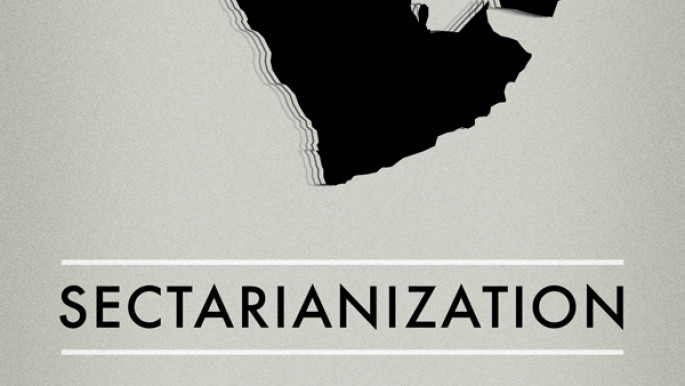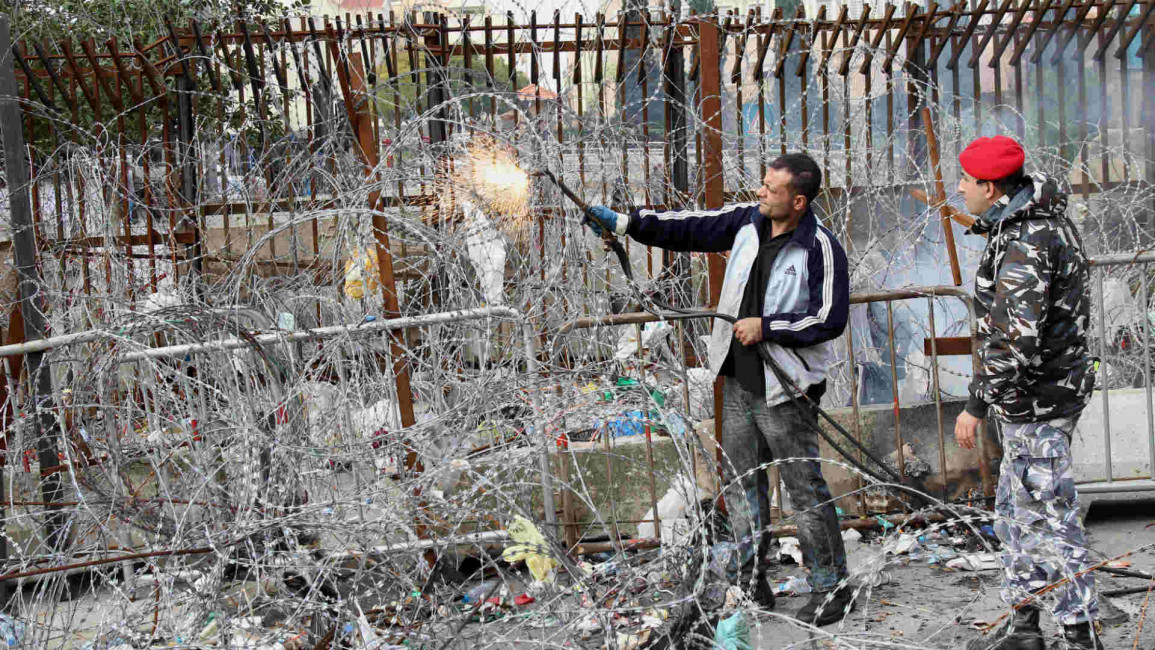
Arab regimes manufacture sectarianism to divide and rule
Former US President Obama, in his final State of the Union address last year, talked of the Middle East today going through long-term transformations that were "rooted in conflicts that date back millennia".
It is not hard to find other examples of other western politicians and journalists describing the violence perpetrated by armies and armed groups in the Middle East as a product of ancient blood feuds and intractable sectarian hatreds.
In particular, the Sunni-Shia rift is suggested as the catch-all explanation for the complex conflicts in Syria and Iraq.
The trouble with seeing this region of the world as beset by intractable sectarian hatreds is that it fails to explain why communal violence is not a permanent feature of life, but one that breaks out only occasionally, albeit with devastating results. It also plays into the hands of dictatorial rulers who argue they alone hold the tide of sectarian violence in check.
A new collection of research by academics and writers specialising in the Middle East and Iran stands this argument on its head. They conclude that it is not intractable hatreds in the Middle East that are to blame for the spate of sectarian violence that has occurred since the uprisings of 2011, but the authoritarian regimes themselves.
 |
These rulers deliberately inflame fears and resentments in their populations, to try to keep their hold on power |  |
Far from keeping the lid on sectarianism, these rulers deliberately inflame fears and resentments in their populations, to try to keep their hold on power in the face of any challenge, whether from popular revolts or armed uprisings.
The problem the region faces, these scholars argue, is not sectarian division per se, but "sectarianisation" - the exploitation and deliberate exacerbation of pre-existing divisions and tensions for cynical political ends.
 |
|
Brazilian professor Paulo Pinto shows in detail how the Syrian regime injected sectarianism into the what was a genuine national-based drive for more civil rights, promoting conflict.
"Wahid, wahid, wahid. Al-Sha’b al-Suri wahid!" ("One, one, one - the Syrian people are one") was one of the leading cries chanted in mixed Sunni, Christian and Alawite cities of Syria in the early days of the uprising - by demonstrators keen to show society was united behind demands for reform.
Such declarations of national unity also betray an awareness that the regime was all too likely to respond to the demonstration not only with physical force, but also by trying to discredit and delegitimise them by painting them as sectarian in nature.
A Syrian society divided against itself was a more acceptable prospect to the regime than a nation unified in its demand for change. And so the regime dismissed the demonstrators from day one as terrorists, Salafists or pawns of a foreign conspiracy.
The protesters expected this, however. And they famously responded to the charge of being Salafists by asking whether a Christian shot by the army during one protest was a "Christian Salafist".
 |
A Syrian society divided against itself was a more acceptable prospect to the regime than a nation unified in its demand for change |  |
The Assad regime whipped up popular memories of the Muslim Brotherhood insurgency of the 1980s to undermine support for the protesters. And at the same time it sought to co-opt the religious establishment to come out against the protests, as the Sunni mufti famously did.
Pinto shows that some pro-opposition Sunni sheikhs meanwhile employed anti-Shia rhetoric in a bid to intensify and control the rebellion. This was then exploited and used by the regime as evidence of their sectarian agenda.
So a complex interplay of accusation and counteraccusation by both sides, playing on fears and resentments, boosted the sectarian nature of the conflict, as the violence and destruction worsened. But there was nothing inevitable about the sectarian nature of the conflict. Rather it was a product of the regime's "divide and rule" strategy.
 |
There was nothing inevitable about the sectarian nature of the conflict |  |
These studies show that Middle Eastern regimes such as Syria and Iraq, monarchies like those in Saudi Arabia or Kuwait, or the theocracy of Iran are not themselves sectarian in outlook.
Twitter Post
|
They use sectarianism, especially when their rule is challenged, as has been the case since 2011.
But their loyalty is to their own immediate clan, not to any wider Sunni or Shia affiliation. Scholars point out that the Sunni regimes of Saudi Arabia, Bahrain and Kuwait do not have an anti-Shia policy per se, but rather an anti-opposition policy.
They will sometimes crack down on Shia communities and at other times paint themselves as their protector in a bid to undermine opposition. "It's about power, not piety," as one writer pithily puts it.
So why do analysts often turn to the easy explanation of entrenched hatreds? The editors of this collection of research detect a "new Orientalism" on the part of western commentators.
They see an echo of the post-2003 view of Iraq which led to a power-sharing system based on dividing the country into Sunnis, Shia and Kurds - something that helped undermine Iraqi national cohesion and entrench sectarian divisions, with devastating results for the country.
| Read more: Middle East sectarianism is a self-inflicted wound | |
But today, sectarian analysis is not the preserve of an "Orientalising" West.
Hardly a day passes when commentators in the Arab media do not accuse Iran of promoting sectarian conflict in the Arab world as part of an implacable commitment to spreading its revolutionary Shia ideology.
Pro-Iranian media meanwhile blame Riyadh for deliberately promoting the Salafi jihadism of the Islamic State group or al-Qaeda. So Arab and Iranian commentators themselves assume an innate sectarian motivation behind the conflict, albeit ascribing such motives to their opponents rather than themselves.
 |
The Sunni regimes of Saudi Arabia, Bahrain and Kuwait do not have an anti-Shia policy per se, but rather an anti-opposition policy |  |
In doing so, they fail to appreciate that both sides are engaged in a struggle for domestic and regional power. Phrases such as "Shia crescent" or "takfiris" are used by politicians, clerics and commentators to awaken popular fears of supposedly implacable ambitions of domination by those on the other side of the Sunni-Shia divide.
What then is to be done? Even if sectarianism is not an innate feature of Middle Eastern historical culture but a tool used by the powerful to keep a hold on power, these researchers rightly question whether its poison can be eliminated once it has entered the bloodstream of countries and their populations.
There are a few bright spots. The "You Stink" movement in Lebanon morphed from anger against the state's inability to organise rubbish collection into a protest over institutionalised sectarianism in Lebanon.
 |
Today, sectarian analysis is not the preserve of an 'Orientalising' West |  |
But the Saudi-Iran rift continues to stoke tensions in Lebanon, as well as making resolution of the conflict in Syria more difficult. If this increasingly dangerous sectarian fault line - for which each side blames the other - could be breached, the sting may be taken out of sectarian conflicts in the region.
After all, it was better understanding between outside powers that helped resolve the conflicts in Northern Ireland and Bosnia.
Authoritarian leaders who successfully exploit sectarianism for their own survival have little interest in trying to change their ways. But gaining a better understanding of why sectarian hatreds and conflicts arise, rather than seeing them as an inevitable feature of Middle Eastern societies is at least a starting point.
Believing that nothing can be done and that democracy will always be frustrated by permanent sectarian division in the Arab world is not only a misreading of history and current events, it is also a fundamental betrayal of the hopes of those pushing for democratic change.
David Powell worked for 20 years as journalist in pan-Arab television news, including BBC Arabic and MBC. He is now an analyst of Middle East affairs specialising in media and Islamist movements.
Opinions expressed in this article remain those of the author and do not necessarily represent those of The New Arab, its editorial board or staff.




